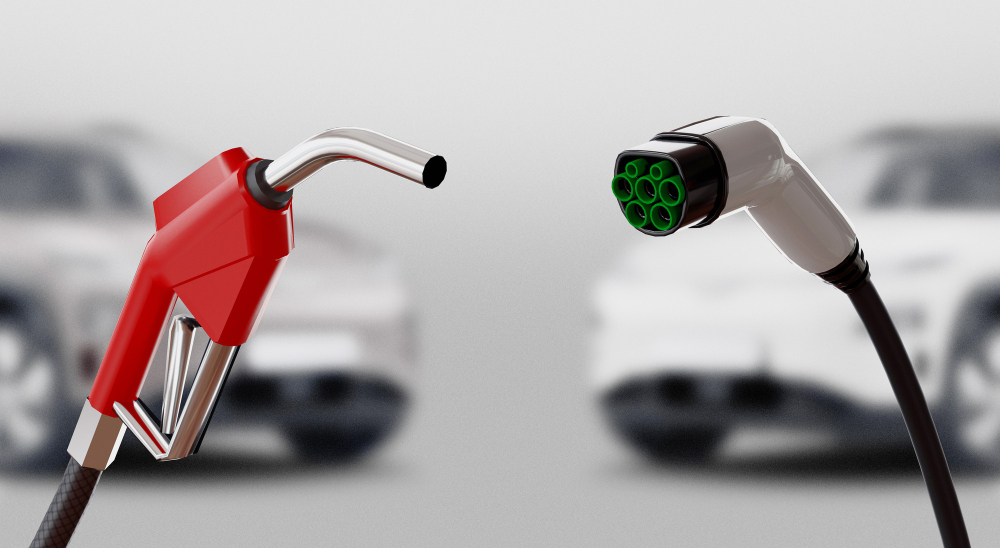As the world moves towards sustainable and eco-friendly transportation options, hybrid vs. electric cars have emerged as two of the most promising alternatives to traditional gasoline-powered vehicles.
This article will delve into the world of green driving and explore the differences between hybrid and electric cars, their types, pros and cons, and environmental impact.
With the growing concern over climate change and the need to reduce carbon emissions, hybrid and electric vehicles have become viable solutions for greener mobility.
Join us on this journey!
What is a Hybrid Car?
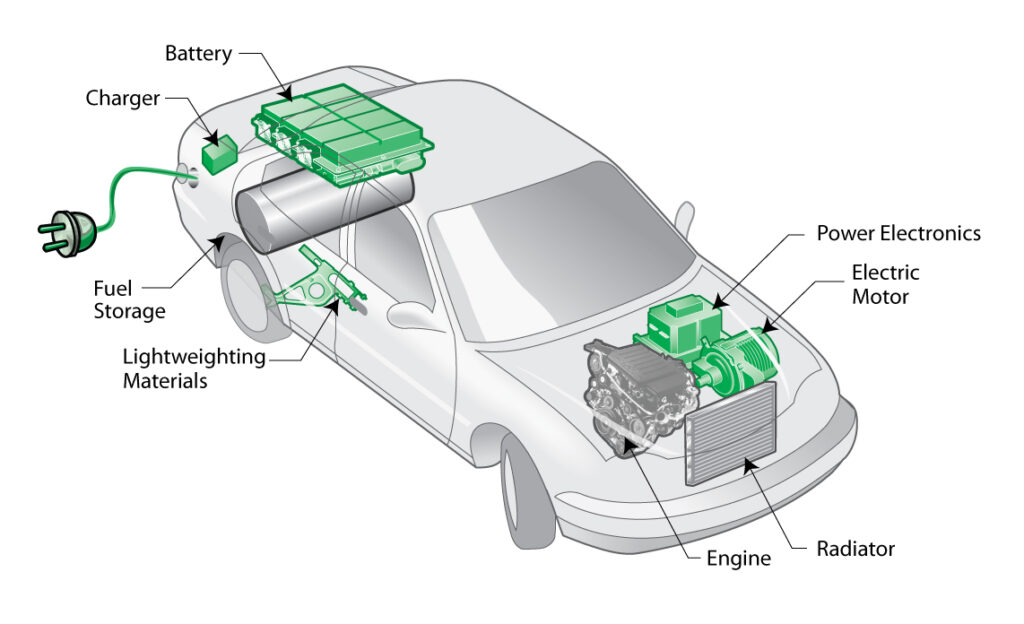
A hybrid vehicle combines two power sources – an internal combustion engine and an electric motor – to propel itself forward efficiently.
The concept behind hybrid technology is to optimize fuel efficiency and minimize emissions by utilizing the electric motor for low-speed driving and the gasoline engine for higher speeds and heavier loads.
By seamlessly switching between these power sources based on driving conditions, a hybrid vehicle achieves a harmonious balance between performance and eco-friendliness.
Types of Hybrid Cars
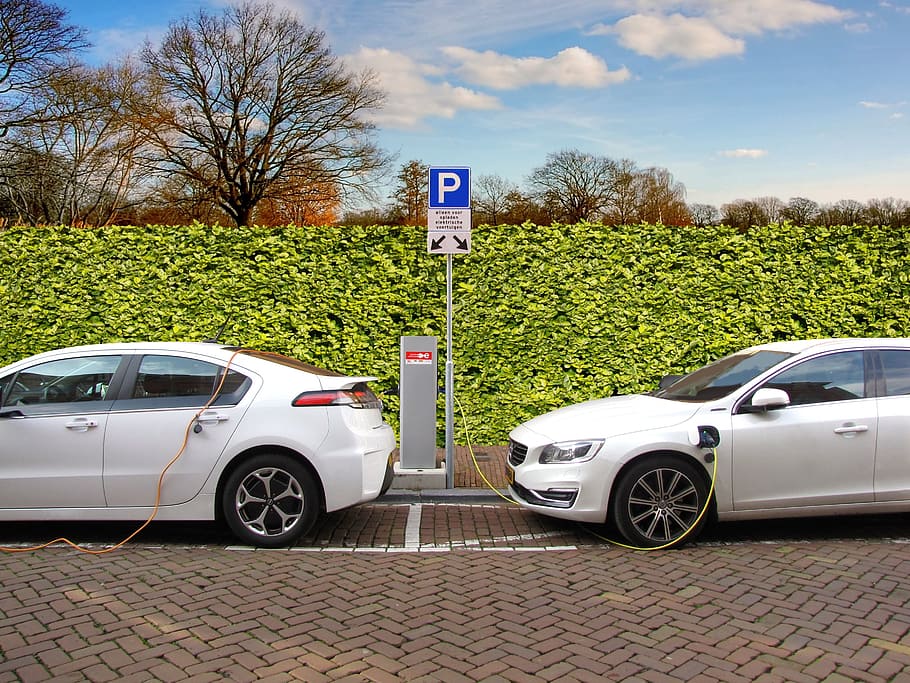
There are mainly two types of hybrid cars:
Parallel Hybrid
In a parallel hybrid, both the gasoline engine and the electric motor work together to power the wheels. The electric motor assists the gasoline engine during acceleration and at low speeds, reducing fuel consumption and emissions.
Series Hybrid
Conversely, a series hybrid mostly depends on the electric motor to move the wheels. The gasoline engine in this type of hybrid acts as a generator, charging the batteries and supplying electricity to the electric motor whenever required.
What is an Electric Car?
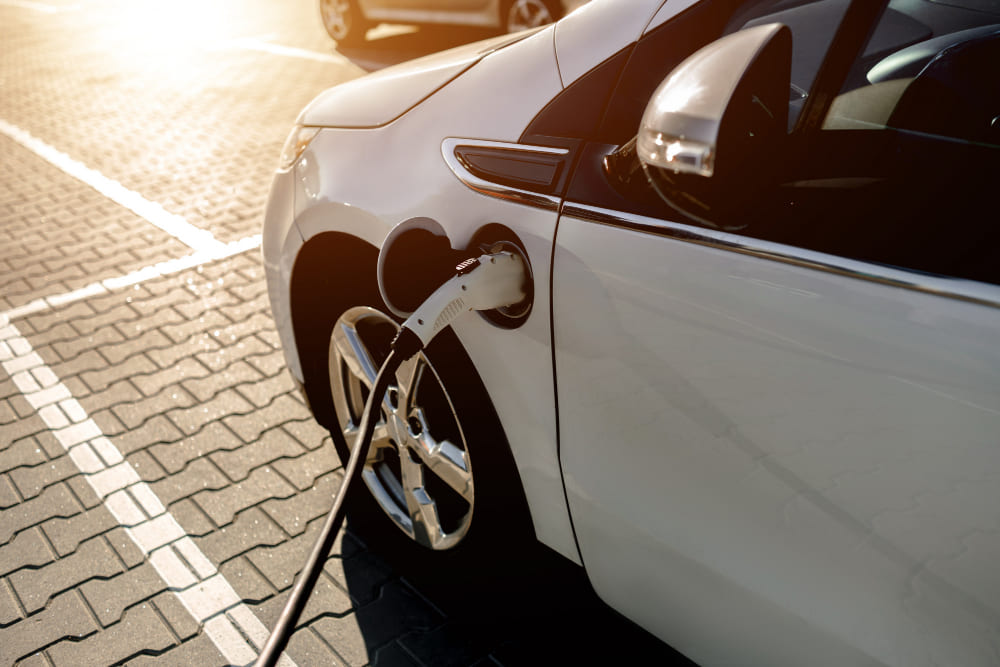
Electric cars, or electric vehicles (EVs), run entirely on electric power. They don’t have a regular engine like traditional vehicles do. Instead, they use electric motors and batteries to move.
Because of this, electric cars produce zero emissions from their tailpipes, making them one of the most eco-friendly and environmentally friendly travel methods.
Types of Electric Cars

There are several types of electric cars available today, catering to different needs and preferences:
Battery Electric Vehicle (BEV)
Fully electric cars, also known as BEVs (Battery Electric Vehicles), are vehicles that operate exclusively on electricity stored in their batteries. These cars provide the longest driving range compared to other types of electric vehicles, but they do need regular charging to keep running.
Plug-in Hybrid Electric Vehicle (PHEV)
PHEVs combine the best of both worlds with an electric motor and a gasoline engine. They can be charged via an external power source and can also rely on the gasoline engine when the battery is depleted.
Extended Range Electric Vehicle (EREV)
EREVs are similar to PHEVs but with a larger battery capacity. They can operate entirely on electricity for a significant distance before the gasoline engine kicks in to extend their range.
Fuel Cell Electric Vehicle (FCEV)
FCEVs use hydrogen to generate electricity, powering the electric motor and emitting only water vapor as a byproduct. However, their infrastructure and availability are limited in some regions.
All-Wheel Drive (AWD) Electric Vehicle
An AWD electric car is a type of electric vehicle that uses several electric motors to make all its wheels work together. AWD electric cars spread power to all four wheels, which helps them handle better. This is especially useful for electric cars in snow, as it improves their grip on slippery roads and makes them more stable while driving.
Pros and Cons: Hybrid vs. Electric cars
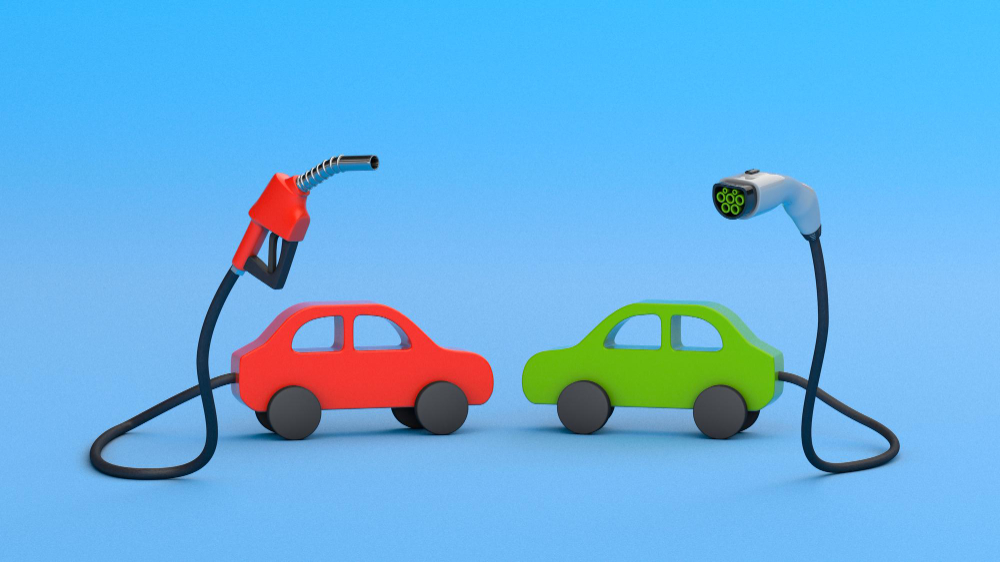
Both hybrid and electric cars have their own set of advantages and disadvantages. Now, let’s delve into the specifics of hybrid vs. electric cars and explore them in detail:
Hybrid Cars:
Pros:
- Improved Fuel Efficiency: Hybrids can achieve higher miles per gallon (MPG) than traditional gasoline-powered cars, reducing fuel costs and dependency on fossil fuels.
- Lower Emissions: Hybrids emit fewer emissions than regular vehicles.
- Regenerative Braking: Hybrid cars use regenerative braking technology to recapture energy during braking, which is then used to charge the batteries.
- Wide Availability: Hybrid technology is well-established and readily available across various car models and brands.
Cons:
- Limited Electric-Only Range: The electric power in most hybrids typically only lasts for short distances before the gasoline engine takes over.
- Less Environmental Impact Reduction: While hybrids are more eco-friendly than conventional cars, they still rely on gasoline and contribute to carbon emissions.
Electric Cars:
Pros:
- Zero Emissions: Electric cars produce zero tailpipe emissions, significantly reducing their carbon footprint and environmental impact.
- Lower Operating Costs: Electric cars require less maintenance and have lower operating costs compared to internal combustion engines
- Quiet and Smooth Operation: EVs provide a silent and smooth driving experience with instant torque delivery from the electric motor.
- Long-Term Savings: Although electric cars may have higher initial costs, they can lead to long-term savings because of their reduced fuel and maintenance expenses.
Cons:
- Limited Driving Range: Although battery technology is improving, electric cars generally have a limited driving range compared to traditional vehicles.
- Charging Infrastructure: The availability of charging stations is not as widespread as gas stations.
- Longer Refueling Time: Charging an electric car takes significantly longer than filling a gas tank.
What’s the environmental impact of hybrid vs. electric cars?
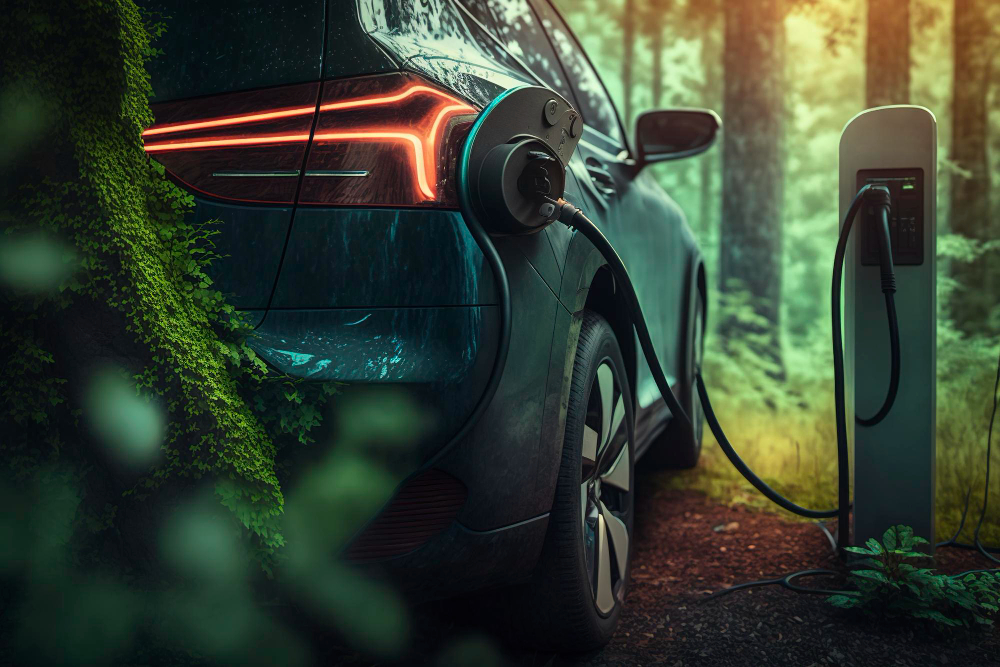
The environmental impact of hybrid and electric cars depends on various factors, including the source of electricity generation and the vehicle’s efficiency. Here’s a closer look:
Hybrid Cars
Hybrids help decrease greenhouse gas emissions compared to regular cars but still use gasoline. That’s why their environmental impact isn’t as low as electric cars. Nevertheless, they can serve as a stepping stone towards a greener driving future.
Electric Cars
Electric cars have the potential to be truly green, especially when charged using renewable energy sources like solar or wind power. They produce zero tailpipe emissions, making them instrumental in combating air pollution and climate change.
Frequently Asked Questions
Can hybrid cars run on electricity only?
No, most hybrid cars cannot run solely on electricity for long durations. Their main purpose is to aid the gasoline engine and enhance overall efficiency. If you are interested, you can explore second-hand electric vehicles for sale in Chiltern for more sustainable transportation options.
What is a hybrid car in simple terms?
A hybrid car is a vehicle that combines an internal combustion engine with an electric motor to achieve better fuel efficiency and reduce emissions.
How long do hybrid batteries last?
The lifespan of hybrid batteries varies depending on how they are used and taken care of. Usually, they can last between 8 to 10 years, or sometimes even longer.
Conclusion
In the world of green driving, there are two promising options to consider: hybrid vs electric cars. Each has its benefits and helps reduce our impact on the environment.
When deciding between an electric or hybrid vehicle, think about your driving habits, daily commute, and the availability of charging stations. Technology in the automotive industry keeps improving, making electric cars more practical and accessible for everyone.
Remember, whether you choose a hybrid or an electric car, you’re positively impacting our planet.
Let’s drive towards a cleaner future together with Kilowatt Cars!
And if you’re interested, you can explore second-hand electric vehicles for sale in Rutherglen to find an eco-friendly option that suits you.

